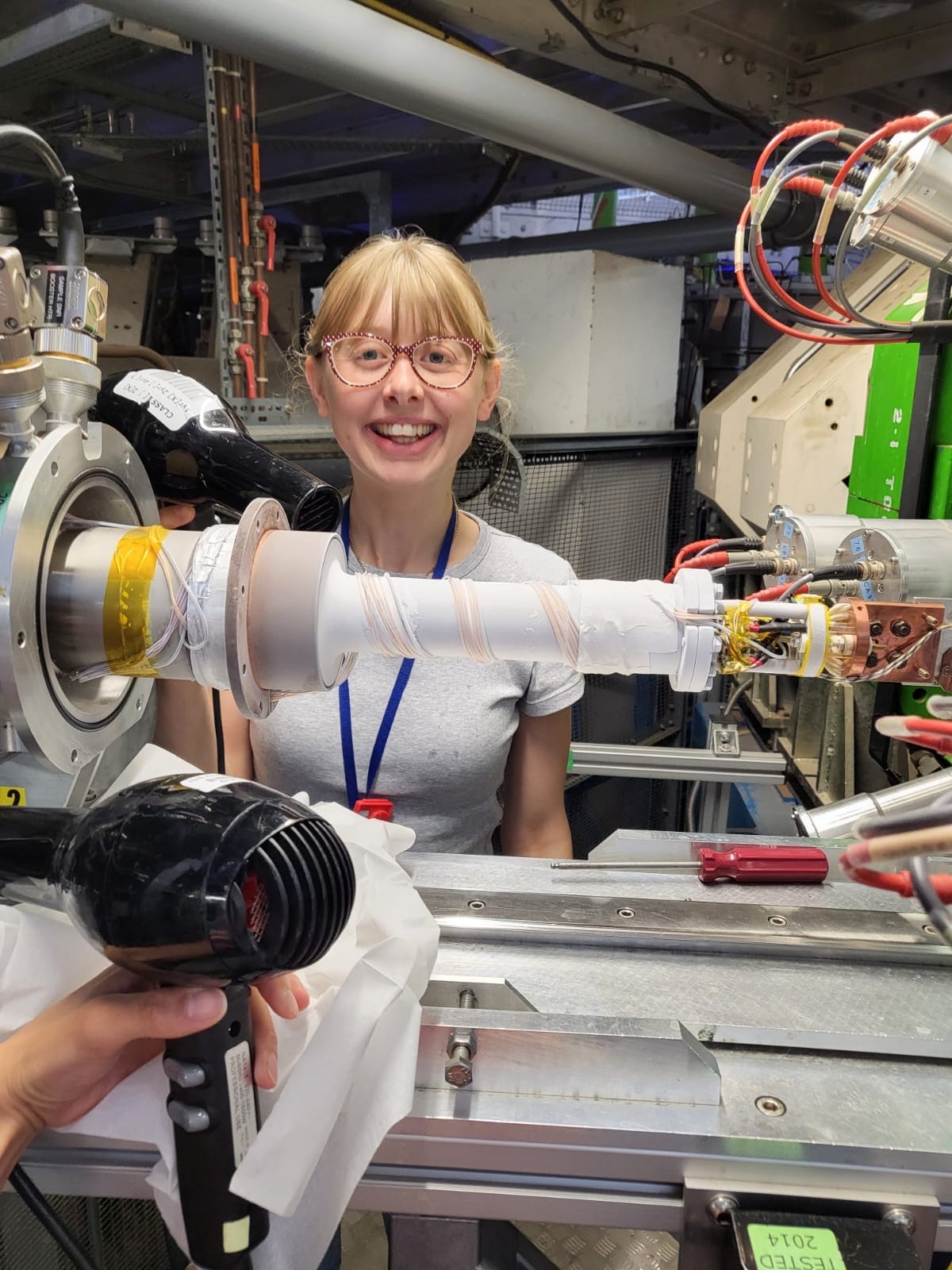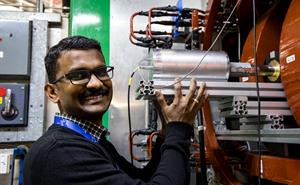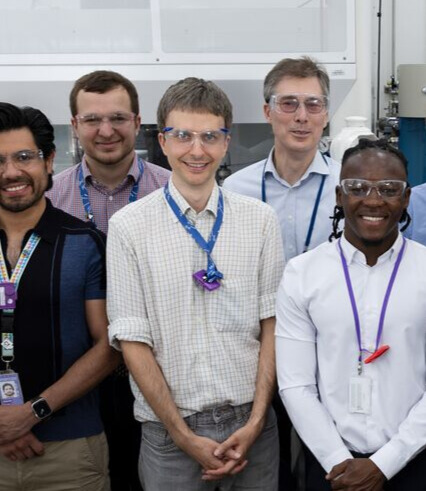One of ISIS’ teams of researchers is the Energy Materials Group, made up of eleven members, ranging from DPhil students to an STFC Senior Fellow . The group originated from the research of Professor Bill David on lithium-ion batteries and hydrogen storage, and now comprises two complementary halves: researching catalysts for synthesis and decomposition of ammonia; and developing and optimising sodium-ion batteries.

Zoë Wright is currently in the 3rd year of her DPhil at the University of Oxford. She originally studied chemistry at A-Level, and continued to enjoy it through her undergraduate studies (despite the Covid-19 pandemic). She met Bill David while on an internship at the Faraday Institution where she learned about sodium-ion batteries and she’s now looking at new cathode materials for high-power batteries.
Her DPhil, funded by the Faraday Institution, is mostly on diffraction and since she’s been at ISIS she’s also had the opportunity to conduct some muon characterisation. She uses neutrons, muons, and X-rays during her work, with the various techniques complementing each other. She says, “it’s a very exciting branch of research as it’s on the cusp of commercialisation, so the next ten years feel very exciting.”
At ISIS, Zoë has seen the bigger picture of what scientific research is like. “It’s not just on the scale of a single lab, we get to use all these different facilities,” she explains, “I’m very lucky to use lots of different instruments. Getting to use the facilities is very exciting and motivating, and these opportunities are harder to find elsewhere.”

Paul Baboo is working as a post-doctoral research associate on the Faraday Institution’s NEXGENNA sodium-ion battery project alongside Zoë. Of the 3 main components in a sodium-ion battery, the cathode is responsible for the largest impact on overall battery performance. His work focusses on characterising cathode materials to understand the exact structure and storage mechanism.
After studying for his PhD at the University of Madras, Paul began his career in battery research as a post-doc in South Korea and since early 2023 he has worked at ISIS. Here, he’s able to work on more in-depth studies, which are only possible with access to facilities like ISIS and Diamond.
Paul is motivated to reduce humanity’s carbon footprint, as he personally experienced the impact of climate change during his time in Chennai. He says, “I would like to contribute to helping solve this in whatever way I can.” One contributor to reducing carbon emissions will likely be improving energy storage to complement renewable energy technologies. This will require navigating the world’s lithium shortage by looking for alternative materials in the next 5–10 years which still perform comparably to lithium.

Tom Wood is an ISIS research fellow, working across both halves of the group with a greater focus on researching catalysts for synthesising and decomposing ammonia. These are both really important processes for long-term energy storage, as batteries are much more suited to shorter term energy storage (no more than a few days at a time, without losses in efficiency and economic viability). Currently, Tom’s trying to make ammonia decomposition catalysts practically scalable, and determining the mechanisms by which new ammonia synthesis catalysts work.
He describes himself as a materials chemist, having built on his chemistry degrees and PhD. He first came to ISIS to work on a proof-of-concept project, and never left, now spending a lot of his day-to-day time writing code, managing projects, garnering grants to maintain the group’s budget, and data analysis. While he’s become less lab-based, he still goes into the lab to help other members of the team.
So why this job? “I love science,” says Tom. “More and more I consider climate change to be the world’s single biggest technologically solvable issue, where I have the power to make an impact.” Tom says that it’s great when fundamental science can have real-world impact. He feels more immediate priority over the next 30 years to work on something which could lead to social benefit, and he hopes that the group’s work can contribute to this.
For more about the group's work, you can hear Professor Bill David talk about clean energy storage in
this video.
